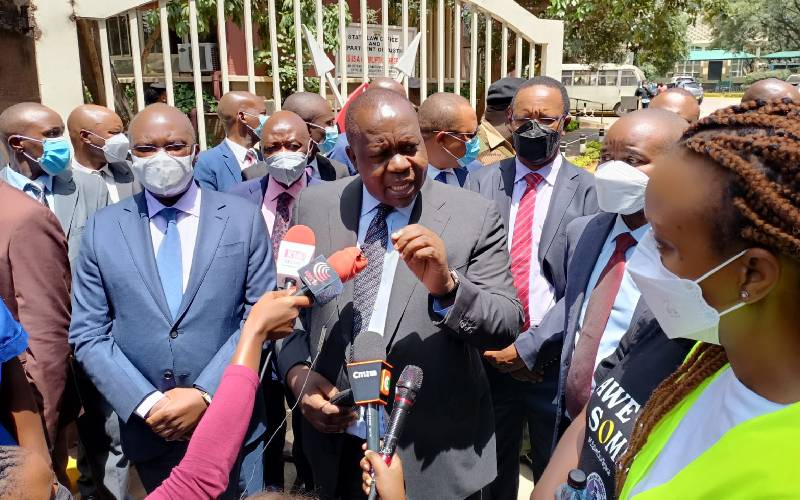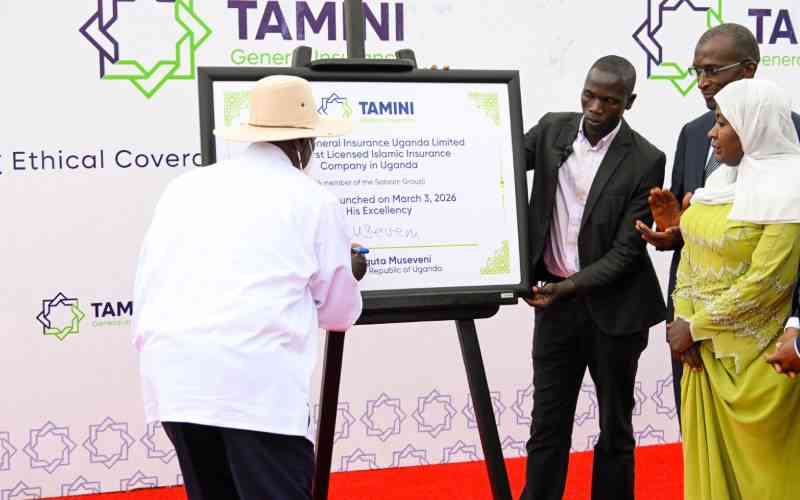×
The Standard e-Paper
Stay Informed, Even Offline

Interior CS Fred Matiang'i on March 8, 2022 said the government would radically streamline the boda boda sector following the sexual assault of a female motorist in Nairobi. [Wilberforce Okwiri, Standard]
I watched with anger a viral video of men harassing a female motorist on Wangari Maathai Road.







